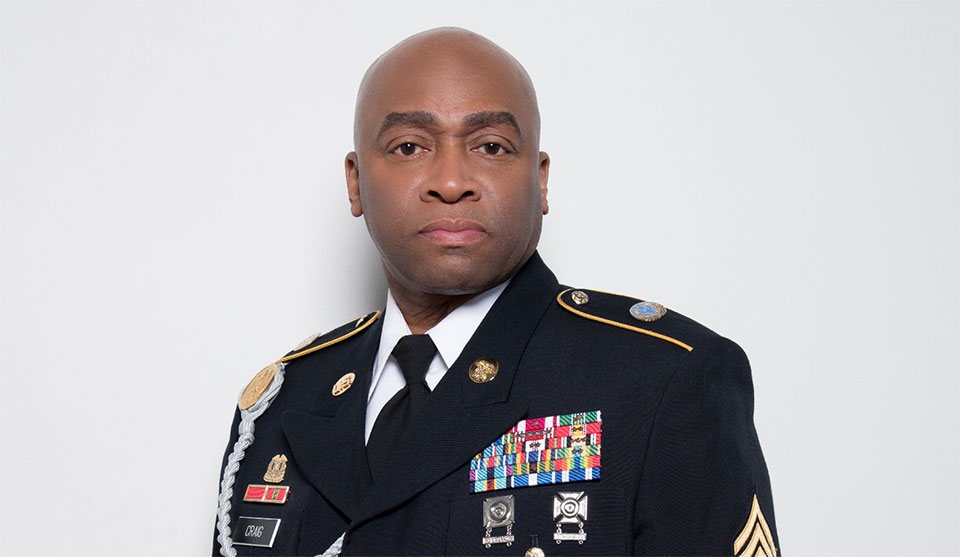5 Things the Military Teaches You About Leadership Everyone Should Know

For C-suite executives, there’s multiple lessons from military service that are applicable to the corporate world. Within business, it’s important to understand a military background does not mean instilling rigidity and barking orders. It’s a command structure built on confidence that allows for individual thought and action that’s necessary for a company to innovate and stand apart from its competition. Here are five key lessons from the military that can teach C-suite members about leadership:
- Personal Accountability Matters
Executives must embrace personal accountability to succeed. You’re the sole owner of the mission of driving the company’s direction, providing staff with instruction, and developing a positive and long-lasting brand. In the military a submarine captain holds themselves accountable for all the men and women onboard. In the U.S. Army, Sergeants Major and Colonels will lead a brigades mission set and make strategic decisions that will impact every single soldiers career under their command. In either case, if things go right then the leader gets some of the credit, but if they go poorly, they accept the blame. It’s about ownership of the results. CEOs and other C-suite execs should embrace this mentality because it instills confidence in the staff and shows them failures can happen if they come with ownership. You can delegate authority but not responsibility, even if you’re the CEO. - You Need to Develop Others
In the military, ranks including ‘Sergeants Major’ and ‘Generals’ have to keep their eyes out for individual soldiers that are outperforming their peers. It’s these soldiers that have a bright future and untapped potential. In the U.S. Army it’s vital for high-ranking leaders to identify and nurture the future leaders through direct mentorship or by tasking other leaders to help guide and keep an eye on the soldier. It’s a model ideally suited for corporate management, where the lessons of success a C-suite executive attains throughout their career reach others to help them realize their own growth and opportunities. Without such a pathway the company won’t innovate, and other competitors will create better products and services and take your promising talent. - METLs (Mission Essential Task Lists) are Essential for Success
The METL is one of the key components of managing any military organization. It’s a wartime process that sets precedents and expectations from the leaders to the entire unit early in the mission/campaign. This avoids the soldiers wondering what the leaders want to prioritize. It sets the stage for success because there’s common objectives in place and clarity on what it takes to reach those objectives. In the corporate world, CEOs and other high-level executives need to establish what they want to accomplish and how they’ll get to that point. If a new leader joins a company, then it’s best to wait 90 days before adding these core directives because it can disrupt the positive things that are in process of completion. - People Drive Success
Within the Army and the other armed forces there’s an understanding that people are the greatest asset. Military leaders invest in people and training because it makes the entire operation more competent, confident, and dependable. Stellar performers at all ranks make the leaders job easier because they’ve completed the right training and hold the right attitudes for the job at hand. For the corporate environment, leaders need to understand this dynamic, where the people that work for them are largely responsible for the success of the organization and their own accomplishments. Developing people in an organization requires embracing inclusion so everyone feels valued. Follow the Army’s Project Inclusion Initiative that develops an organization that is a “team of teams” where people feel they belong. - You Must Act with Confidence
CEOs can also adopt a military-style attitude when it comes to identifying and correcting mistakes. In the military, if a leader walks by a mistake without offering correction, then they are accepting the new lower standard for future behavior or process. Make the correction immediately (with constructive feedback) to set expectations for excellence. Do this with confidence so the team understands you’re setting high standards for them and yourself.
A business leader must show confidence in their tactics and overall strategy. In the military, the soldiers are looking for a steady and confident leader, especially when involved in dangerous situations. You’re supposed to think, decide, then act. Soldiers have questions and worry and need reassurance that the pathway set by their leaders is sound and will get them to complete an objective with limited harm. CEOs need this same confidence in their decisions. And they should encourage their management team to follow suit, so their staff members receive clear and confident direction.
CEOs should of course take on information from multiple sources and listen to counsel to make informed decisions, but their final decisions should come from a place of authority and confidence. When done properly, this brings people on board to a certain way of thinking and strategy, and sets the right tone for partners, customers, and other stakeholders that need to see confident and competent leadership.
Written by Keith L. Craig. Have you read?
Digital Advances Enable a More Sustainable Tomorrow by Peggy Smedley.
The key to finding your corporate urban myths by Gabrielle Dolan.
Why we need to lead like Sherlock Holmes by Rebecca Houghton.
Bring the best of the CEOWORLD magazine's global journalism to audiences in the United States and around the world. - Add CEOWORLD magazine to your Google News feed.
Follow CEOWORLD magazine headlines on: Google News, LinkedIn, Twitter, and Facebook.
Copyright 2025 The CEOWORLD magazine. All rights reserved. This material (and any extract from it) must not be copied, redistributed or placed on any website, without CEOWORLD magazine' prior written consent. For media queries, please contact: info@ceoworld.biz








